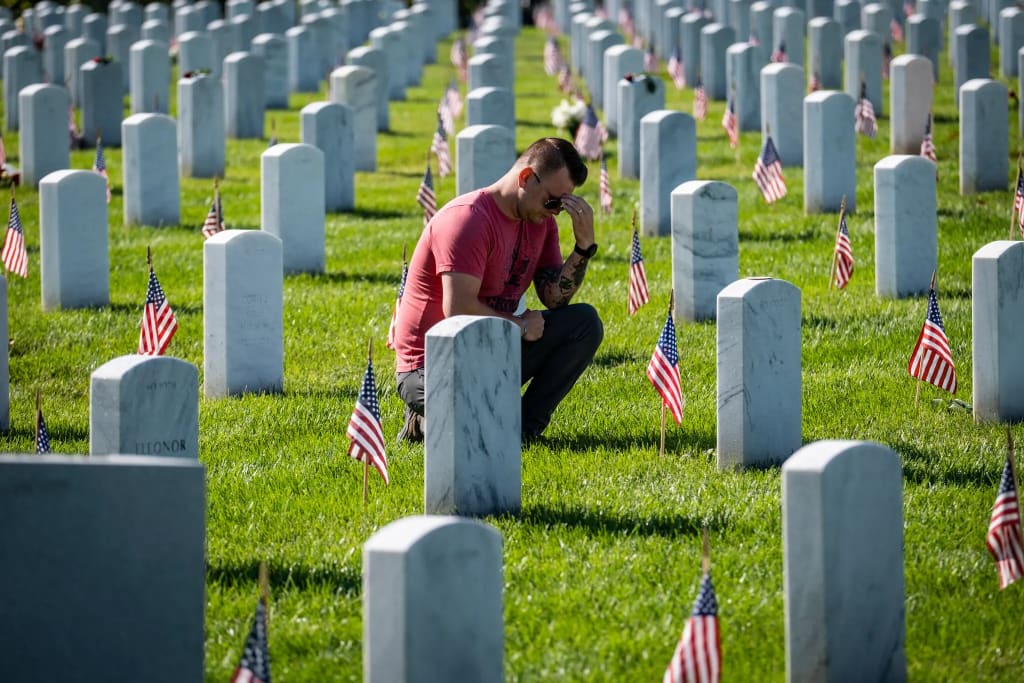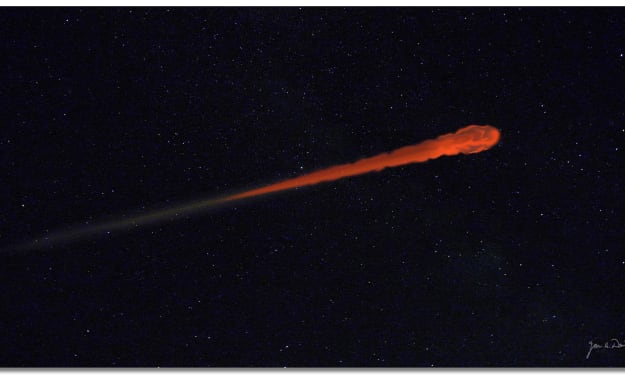
Honoring the Civil War dead
The Civil War gave rise to the holiday as all Americans—Northern, Southern, Black, and White—struggled to remember the overwhelming number of warriors who lost their lives—at least 2% of the country’s total population at the time. Memorial Day's origins are disputed by a number of locations. One of the oldest reports comes from Boalsburg, Pennsylvania, where it is claimed that three women decorated the graves of men who had perished fighting for the Union during the Civil War in October 1864 by placing wreaths and flowers.

A sizable procession was staged in the destroyed city of Charleston, South Carolina, in May 1865, just after the war was over. Numerous Black Americans who had been slaves up to the city's liberation a few months prior were among the thousands that gathered there to remember the Union prisoners of war who were laid to rest in a mass burial at a former racecourse. Around 3,000 youngsters led the service while bearing flowers and singing the Union marching song "John Brown's Body." According to historical accounts, hundreds of women followed with baskets of flowers, wreaths, and crosses.
Charleston, South Carolina, which had been completely destroyed by the war, had a sizable procession in May 1865. Thousands of Black Americans, many of whom had been slaves up until the city's liberation a few months before, remembered the lives of Union prisoners of war who were interred in a mass grave at a former racetrack there. Around 3,000 youngsters led the service while bearing flowers and singing "John Brown's Body," the Union marching anthem. According to historical accounts, hundreds of women came after them with baskets of flowers, crosses, and wreaths.
What’s in a name?
Whatever its origins, historians concur that the first publicly observed remembrance took place in 1868 when Gen. John A. Logan, the head of the Union veterans' organisation Grand Army of the Republic, campaigned for a federal holiday to honour the Civil War fallen. He said that practically every town, village, and churchyard contained their remains.
The month of May, according to Mr. Logan's directive, should be "designated for the purpose of strewing with flowers or otherwise decorating the graves of comrades who died in defence of their country."
The event was commonly known as "Decoration Day" for a long time. However, when the holiday evolved to honour all military personnel who had died while serving the country, not just Civil War veterans, Americans started using the term "Memorial Day." An story that was written on June 7, 1868, is one of the earliest mentions of the memorial in The New York Times. It describes a note from "a little girl about 10 years of age" asking a representative to place the wreath on the tomb of an unidentified rebel soldier. She explained that her father was interred in Andersonville, Georgia, and she hoped that "some little girl" would leave a similar gesture at his grave.
Another story from May 31, 1870, mentions processions taking place, among other places, in Brooklyn and New York City, which were still distinct cities. The article stated that, besides Independence Day, "Memorial Day calls out the patriotic feelings of our people more than any other day." Memorial Day was declared a national holiday by "the general consent of the people," not by an act of the Congress.
The American Historical Association's director of research and publications, Sarah Weicksel, explained that the shift was a component of a larger initiative to institute three-day weekends: "They wanted it to be an opportunity for people to be able to gather."
What about Veterans Day?
According to Sarah Weicksel, director of research and publications at the American Historical Association, the modification was made as part of a larger initiative to establish three-day weekends: "They wanted it to be an opportunity for people to be able to gather."

Armistice Day, commemorated on November 11 every year to commemorate the end of World War I in 1918, is now known as Veterans Day. The holiday was first observed in the United States in 1919, but it was expanded to honour all veterans in the 1950s.
A contested history
The true history of Memorial Day is still a mystery, scholars say, even 160 years after the American Civil War came to a conclusion. Black history on the holiday, however, is not widely accepted. During an American Legion service in Hudson, Ohio, in 2021, a veteran who had attempted to credit Black Americans had his microphone taken away.

According to Yale University historian David W. Blight, "Charleston forgot this story because it did not fit" the developing narrative in the vanquished South. He discovered the specifics of the racecourse procession in the 1990s, which happened at a location that used to be well-liked by plantation owners. He continued, "They were reinscribing it, as a place to commemorate their freedom." of the Black marchers.
The Lost Cause myth, which holds that the insurrection was a valiant revolt against Northern tyranny and had little to no connection to slavery, was upheld by white Southerners on Memorial Day, according to Dr. Blight.
Frederick Douglass, who remarked at Arlington National Cemetery on Memorial Day in 1871: "We must never forget that success to the insurrection meant death to the republic, rejected the idea that all sides of the war had fought for a good cause early on. We must never lose sight of the fact that the devoted troops buried beneath this patch of dirt put themselves between the country and its destroyers.
About the Creator
SH Mark
There are numerous universes inside me. I invest a great deal of energy there investigating






Comments
There are no comments for this story
Be the first to respond and start the conversation.